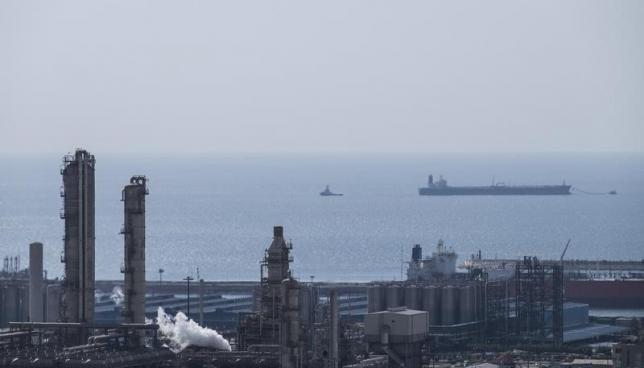With Iran sanctions lifted, what will become of Egypt?

By Sara Khorshid
On the same day long-standing international sanctions on Iran were lifted, 140 Saudi Islamic clerics signed a statement calling on the Saudi government “and all the governments and people of Muslim nations” to unite against the “existential threat” posed by Iran to all Muslims, both “the regimes and the peoples”. But in Egypt, public opinion leaders have urged Cairo to avoid drifting into a dangerous sectarian conflict.
Around two weeks before the lifting of sanctions against Iran on Jan. 16, the Egyptian foreign ministry voiced its support for Saudi Arabia and condemned attacks on the Saudi embassy in Tehran and the Saudi consulate in Meshhad in response to the execution of Shiite cleric Nimer al-Nimer in Saudi Arabia. Already a supporter of Egypt since the 2013 ouster of then-President Mohamed Mursi, Riyadh has recently pledged to increase Saudi investments in Egypt to above 30 billion Saudi riyals ($8 billion) and to contribute to providing Egypt with petroleum needs for the next five years.
But Foreign Minister Sameh Shoukry did not rule out “dialogue” between Cairo and Tehran if the latter changes its “approach”, according to an interview published in the privately-owned daily Al-Masry Al-Youm on Jan. 17.
Regional policies in the making
Cairo University political scientist Dr. Riham Bahi says Egypt’s regional policies come in the context of “loose alliances”, with priority given to the economy in addition to Egypt’s “image as a reliable partner, a mediator and an important regional reference.”
According to Dr. H. A. Hellyer, senior nonresident fellow at the Atlantic Council, “Cairo hasn’t quite developed its own regional policies.”
“A key element within regional relationships is the emphasis on opposing Islamism – but Iran is an ally against ISIS, which may complicate matters. On the other hand, Tehran is in competition with Riyadh, which is a close ally of Cairo,” he added.
In a turbulent region with more than one power vigorously pursuing their national interests, Egypt is caught between its relations with conflicting poles.
Another regional player is Turkey, with which Egypt has been at loggerheads over Turkish President Recep Tayyip Erdogan open criticism of the military ouster of Mursi, who hails from the Muslim Brotherhood group.
Turkish-Egyptian relations
Since December, speculations have floated around in Egyptian media about Saudi attempts to reconcile between Cairo and Ankara so as to consolidate a “Sunni” bloc vis-à-vis Iran.
"Saudi has been keen to get Ankara and Cairo on the same page,” Hellyer said, “but neither capital appears particularly interested. Erdogan has as a pillar of his own policy with regards to Egypt to back the Brotherhood and the ousted president Morsi – Sisi opposes the Brotherhood throughout the entire region. “
When asked about the possibility of a rapprochement, Egyptian Foreign Ministry Spokesperson Ahmed Abu Zeid told Aswat Masriya that Egypt “does not have problems with any side” and “is waiting for the other side” to demonstrate positive initiatives before discussing improvement of relations.
Both Egypt and Turkey are members of the Organisation of Islamic Cooperation (OIC), which will hold its 13th Islamic Summit in April in Istanbul. Egypt is expected to hand over its presidency of the summit to its successor, Turkey, in accordance with the usual protocol. If Egyptian President Abdel Fattah al-Sisi decides to be Egypt’s representative at the summit, it will be the first high-level meeting between the two countries since 2013.
Egypt has not yet announced who will represent it in Istanbul in April.
The editor of the Turkey-based Zaman Arabic, Cumali Onal, told Aswat Masriya that he sees reconciliation between the two countries’ presidents unlikely. Then again, Erdogan’s priority is “to consolidate his power” and he would “create a new era with Egypt” only if this could help achieve this end.
Hellyer says that for “purely strategic reasons, the two capitals have much to discuss – but relations remain incredibly poor, and that’s unlikely to change any time soon.”
However, even if the unlikely scenario of a Turkish-Egyptian rapprochement materialises, the most powerful player in the region currently is Iran, which is “improving good relations with both Western powers and Russia very rapidly,” according to Onal.
With both Turkey and Egypt weaker than they were 10 years ago, he adds, “it is doubtful that an improvement in relations between Turkey and Egypt will be helpful for the Middle East.”
A political solution
Like many other Egyptian observers, Bahi rejects the idea of a Sunni alliance saying that it would escalate the situation in a region already marred by crises.
She believes that Egypt should not rule out dialogue with Iran; otherwise it will miss out on a great opportunity to play an important role and help reach “a new regional order”.
Bahi is not alone. “Dialogue with Iran has become necessary for reaching” a regional balance, Egyptian columnist Abdallah al-Sinawi wrote in al-Shorouk newspaper in October.
More recently, Gamil Mattar wrote, also in Shorouk, that Egyptian circles have witnessed “a general objection to the nature” of the Saudi-Iranian crisis and a concern about a rise in the sectarian element.
Both Mattar and Sinnawi pointed to the “Omani model” in diplomacy. Sinawi called on Egypt to charter its own model.
Bahi hopes that Egypt would stop adopting a wait-and-see approach and take a proactive initiative to open dialogue channels with Iran and other countries and restore Egypt’s historic role as a regional mediator.









facebook comments